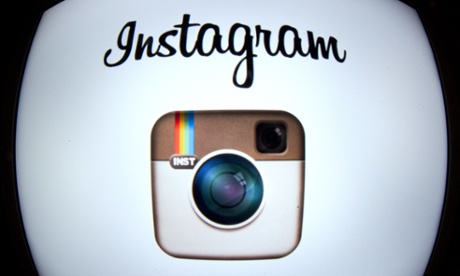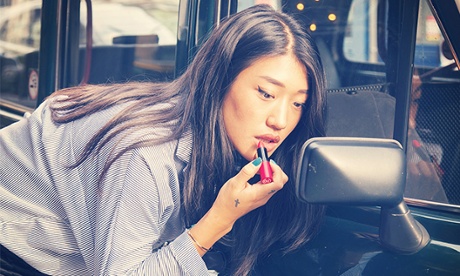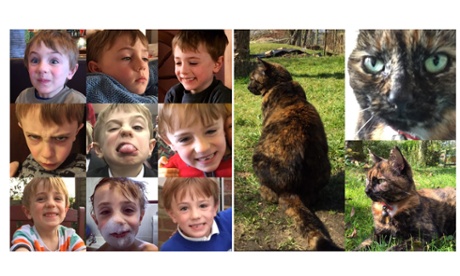Technology writers are sadly (some gleefully) announcing the latest admission to the social media morgue: the formerly ascendant photo-sharing app BeReal.
The app had been a huge success, jumping from 1m to 20m users in just seven months. Central to its success was its positioning as the anti-Instagram, a platform trading on authenticity that offered a glimpse of our friends’ “real” (read: mundane) lives. But its active daily users more than halved between October 2022 and March 2023, down from 20m to 6m. Its expected demise not only forces us to ask how “authentic” a photo-sharing app can ever be, but whether we actually want the authenticity it sells.
Released in 2020, BeReal prompts users at a random time each day to take one photo from their normal smartphone camera to capture their surroundings, and the other from their selfie camera, usually to reveal their face. Like many social apps, the photos are available to your “friends” list, but only users who post their own photos can view others, cleverly cementing BeReal’s place in your daily routine.
This was supposed to be in contrast to dominant apps such as Instagram, dubbed the highlight reel of our networked lives. There, as communications expert Hannah Ditchfield explains, we have ample time to “perfect” our self-presentations in a manner we are unable to do in face-to-face settings. I can easily edit my Instagram posts to, say, make my thighs a bit thinner, my teeth a bit whiter, my frown lines all but disappear. But BeReal proudly offers a filter-free experience, giving users just two minutes to respond to its prompt, countering other platforms’ curation cultures. So why the loss of interest among its users?
It may be that the app’s purported selling point of “authenticity” has been overstated. As the anthropologist Charles Lindholm explains, authenticity aims to describe “the reverse of everything that is defined as pseudo-, sham-, make-believe, makeshift-, mock-, would-be-, fake-, phony-, semi-, near-, baloney-, synthetic-”. BeReal offered a partial solution to the performativity fatigue supposedly plaguing users of high-curation apps like Instagram and TikTok. But ultimately, it just added another demand for self-presentation, only this time, you had to pretend to be authentic once a day, instead of being comfortably inauthentic on an app like Instagram.
People may have grown tired of BeReal’s authenticity facade. In a way, its users were set up to fail: either take the picture at the designated time and feel a bit rubbish about what you’ve posted, or take it late and tell the world that you (gasp) care about your digital self-presentation. BeReal held a mirror – or at least a front-facing camera – up to its users, encouraging reflection on our self-presentations. But maybe, deep down, we quite liked what we already had.
Wanting the world to see you at your best isn’t an abnormal feeling, nor is it remotely new. In 1956, the sociologist and social psychologist Erving Goffman told us that human communication involves careful and strategic management of the “impressions” we leave on others. He argued that humans try to control their social interactions with the end goal of avoiding embarrassment, and that we make use of qualities like appearance and manner to guide people’s impressions of us. Maybe showing your friends that you’ve barely left the house for three days doesn’t make for a fulfilling or, crucially, pleasurable social experience, online or off. Pleasure is a core aspect of our relationships with social apps, yet it is so often overlooked in our critiques, in favour of an over-emphasis on their potential harms.
From a business standpoint, an app will be judged on whether it finds enduring success and market share. But apps that do not meet or maintain mass adoption shouldn’t readily be labelled as failures. As they clutch at their market share, rival apps are morphing into each other and end up all feeling exactly the same. It is, in my view, healthy to seek a diversity of tools and media, allowing alternative understandings of social media to flourish, and maybe, just maybe, offering an opportunity to disrupt tech giants’ monopolies.
If Goffman had lived to see the rise of social media, he probably would have reminded us that we were not meant to have our audiences – our friends, family, work colleagues, acquaintances, nemeses – distilled into one place. It might seem great at first, but eventually context collapse sets in: your mum joins, your ex adds you, and the family member no one speaks to DMs you into oblivion. Soon enough, users find themselves frustratedly migrating to a newer app, where their “audiences” aren’t blurred into one, and on the cycle goes.
A growing user base isn’t necessarily a happy one, which is why it would be shortsighted for every new app to try to chase the same success as Instagram. An app might have something unique or interesting to show us, without a need to become the place where everyone is. In the race to create the new “all-consuming” social app, we need to ask ourselves what might be lost.
BeReal’s decomposition may be delayed and drawn out: in late April, for example, the company announced several changes and features, like “bonus BeReals”, which let you snap two extra pics if you posted your first within the two-minute window. But, eventually, the app is likely to be respectfully buried, awaiting nostalgia and longing among its most enthusiastic users. Maybe it’s OK that BeReal was evanescent; that it was simply that fun thing we all did last summer. After all, there are worse ways to be remembered than the app that taught us it’s too exhausting to be real on command.
Ysabel Gerrard is a senior lecturer in digital communication at the University of Sheffield
Do you have an opinion on the issues raised in this article? If you would like to submit a response of up to 300 words by email to be considered for publication in our letters section, please click here.











